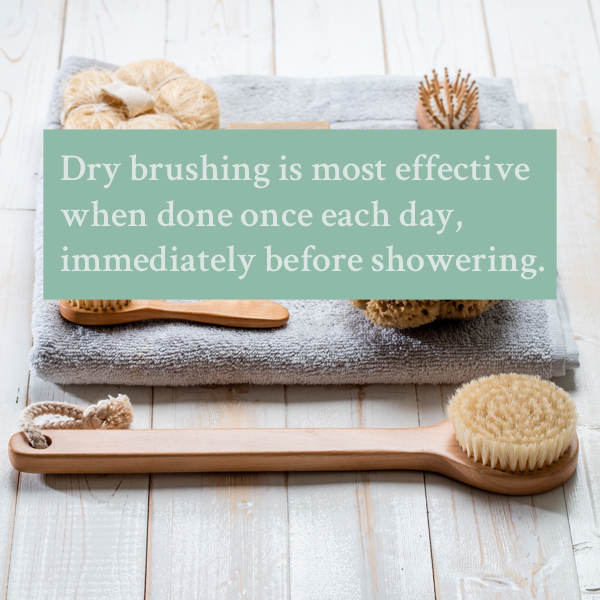This is the second in a series of four blog posts about healthy skin. In the first blog post of the series, Skin 101: Everything You Need to Know About Your Largest Organ, I explained what your skin does and why it’s so important.
If you missed it, here’s a quick recap:
The skin is the largest organ of the body, with a total area of about 20 square feet. It protects us from toxins, helps regulate body temperature, and permits the sensations of touch, heat, and cold.
We’re continuing the discussion in this blog post and providing ten key elements that will help you maintain healthy, youthful, and radiant skin.
There are lots of skin care products on the market that are advertised as “the key” to healthy skin, but really, healthy skin is not something that you can achieve with lotions and serums alone. It’s an inside job!
If your internal systems are healthy, it will show up on your skin.
That said, here are some lifestyle hacks, foods, and supplements that you can incorporate into your daily routine to help improve or maintain the health and radiance of your skin:
1. Stay Hydrated
Sixty-four percent of your skin is composed of water (1), so it’s no surprise that when you’re dehydrated, your skin can become dry, flaky, and tight.
The National Academies of Sciences, Engineering, and Medicine recommends that men drink 15 ½ cups of water and women consume 11 ½ cups each day for optimum hydration. (2) Of course, these recommendations aren’t steadfast rules. If you’re active, live in a place where the climate is warm and dry, are traveling, or fighting an infection, you’ll need to consume more liquid than someone who is less active or living in a place with cooler weather.
As much as possible avoid water that has been treated using reverse osmosis. Instead drink clean, filtered water.
You can add chelated minerals (like these) to your water for easier absorption.
No water on hand?
Stay hydrated by eating foods with a high water content, like watermelon, cucumbers, nectarines, mandarins, and grapes.
2. Eat Foods High in Antioxidants
Antioxidants reduce the effects of free radicals, also known as oxidative stress. They also help to slow the signs of aging in our skin, eyes, and tissues, resulting in healthier and more youthful, healthy skin.
Foods high in antioxidants include:
- Avocados
- Eggs
- Berries
- Oranges and Grapefruits
- Dark Chocolate
- Spinach
- Salmon
For a more detailed look at the nutritional profile of each of these foods, check out this blog post.
3. Incorporate Collagen Boosting Nutrients Into Your Diet
Collagen is an essential protein that increases the elasticity of the skin, making it appear more youthful, healthy, and vibrant. As you get older, however, collagen production declines, causing loose skin, wrinkles, fine lines, and dryness to occur, so it’s important to incorporate collagen boosting foods or supplements into your diet. These nutrients include:
- Omega 3’s
These fatty acids help to decrease internal inflammation and reduce wrinkles. - Vitamin C and D
Vitamin C with its antioxidant properties aids in collagen synthesis and the prevention of ultraviolet (UV) induced photodamage (3). Similarly, vitamin D plays a major role in skin cell development and repair. It also helps to eliminate free radicals that can cause premature aging of the skin (4). - Biotin
Biotin, also known as vitamin B7, is a water-soluble vitamin that is essential for healthy metabolic, digestive, cardiovascular, and metabolic functions (5). It may also protect the skin from acne, rashes, fungal infections, and severe dryness (6). - Bone Broth
The collagen in bone broth helps to strengthen your skin, maintain its elasticity, and prevent wrinkles. It also helps to heal your digestive tract, preventing inflammation that can lead to premature aging.
4. Smile More
Have you ever noticed that your skin tends to break out more when you’re stressed? Stress causes chemical responses in the body that make your skin more sensitive and reactive. It also stimulates the production of stress hormones, like cortisol. These hormones signal your skin glands to produce more oil, making you more prone to breakouts, acne, and other skin problems.
Combat your stress by smiling.
Not only does smiling make you look younger (7), it also stimulates the release of neuropeptides that help fight off stress (8).
5. Get Adequate Sleep
The body repairs and recovers while you sleep, resulting in skin cell regeneration and increased blood flow to your skin. Getting 7-9 hours of quality sleep can decrease wrinkles and puffiness. It can also increase the radiance and natural glow of your skin. So be sure to catch your zzz’s if you want healthy skin.
6. Exercise
As we age, the dermis begins to thin. It also loses elasticity and skin cells, causing the skin to sag and has a more translucent appearance. However, studies have shown that exercise may slow down this process.
A study conducted on rats that were bred to age prematurely showed that the animals that were given a regular exercise regimen aged more slowly than the animals that were sedentary (9). While there are significant differences between humans and rats, scientists speculate that if regular exercise can keep the skin from aging in rats, it could have the same effects on human skin.
Additionally, mild or moderate sweating while exercising opens up your pores and purges the skin of toxins that can lead to pimples and blemishes.
7. Eat Your Protein
Protein contains amino acids L-lysine and L-proline, both of which are essential for the creation of collagen. Consuming at least 60 grams of plant-based or animal protein daily will help increase and maintain your collagen levels, making your skin less prone to wrinkles.
8. Protect Your Skin
Sunlight is great for our health, but too much exposure can damage the cells and blood vessels of the skin resulting in skin that appears dry, discolored, wrinkled, and leathery. It can also increase your risk of developing skin cancer.
To protect your sun from overexposure apply sunscreen daily, wear protective clothing, and avoid direct exposure to sunlight in the middle of the day when UV rays are strongest.
9. Take a Probiotic
Probiotics are live bacteria that help keep your digestive system healthy and strong. Since your skin reflects the internal health of your body, if your digestive system is healthy and happy, your skin will also be healthy and happy.
To maintain the health of your digestive system (and your skin), I recommend supplementing with a probiotic and incorporating probiotic foods, like sauerkraut or kimchi, into your daily routine.
10. Dry Brush Your Skin
Dry brushing is a great way to exfoliate the skin. It also helps to detoxify the skin by increasing blood flow and stimulating the release of toxins from your lymphatic system.
The best way to dry brush is to use a brush with natural bristles on dry skin. Start at your feet and work your way up using long fluid strokes on your limbs and circular strokes on your torso and back. Your abdomen, neck, and breasts can be sensitive, so you may need to use lighter strokes in these areas.

Incorporating these ten elements into your daily routine can significantly improve the health of your skin.
I speak from clinical experience. I’ve seen improvements in the skin of many of my patients. But healthy skin is also something I’ve personally been working on for a long time and through using the recommendations I’ve shared with you here, my skin has become more clear, radiant, and youthful.
In the next blog post of this series, I’ll go into detail about one of the most common skin conditions I see in my practice, acne. Stay tuned for information about its causes and treatment options.
xo,


